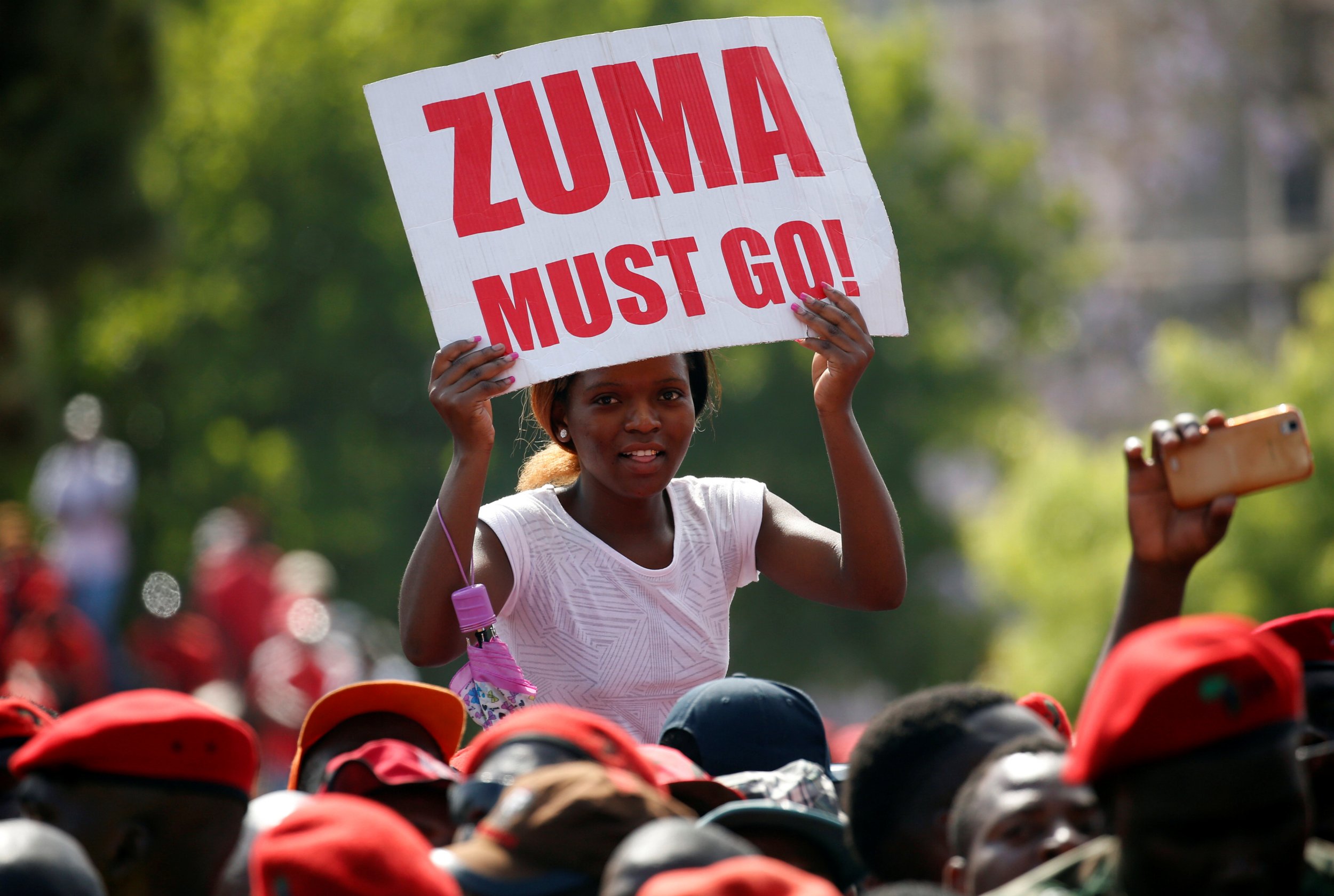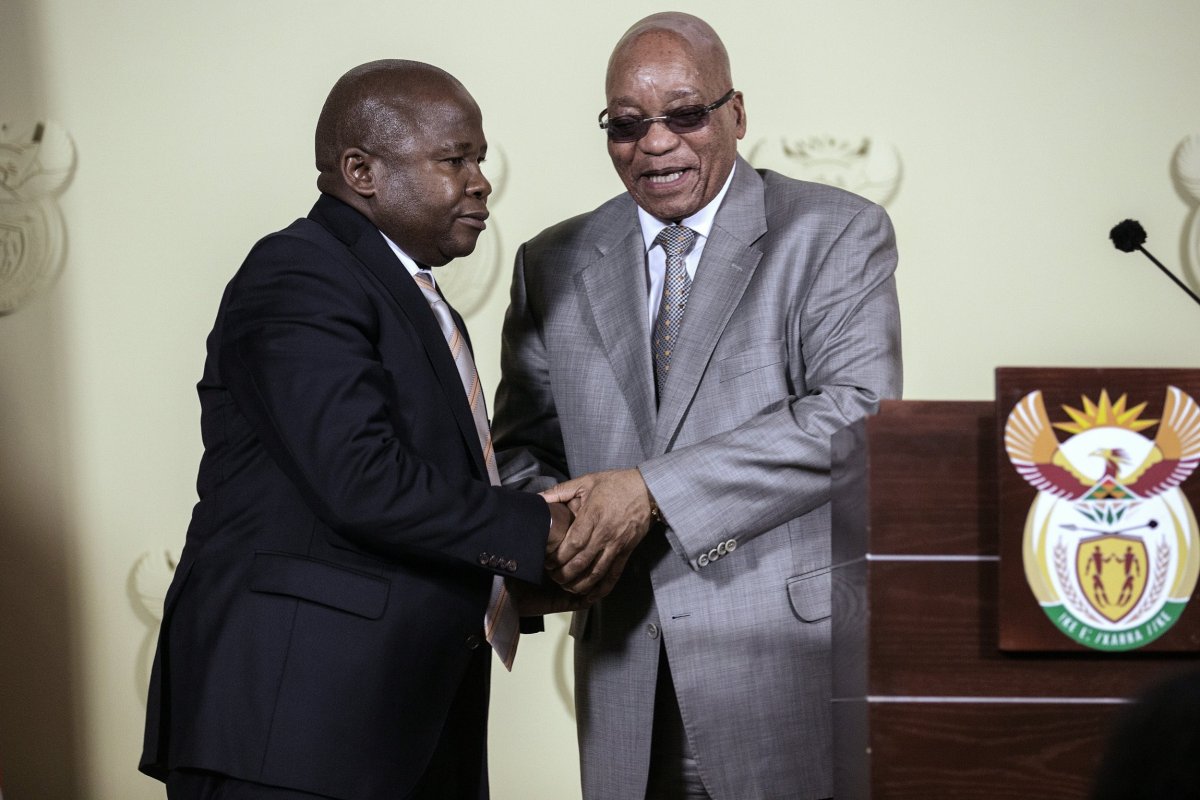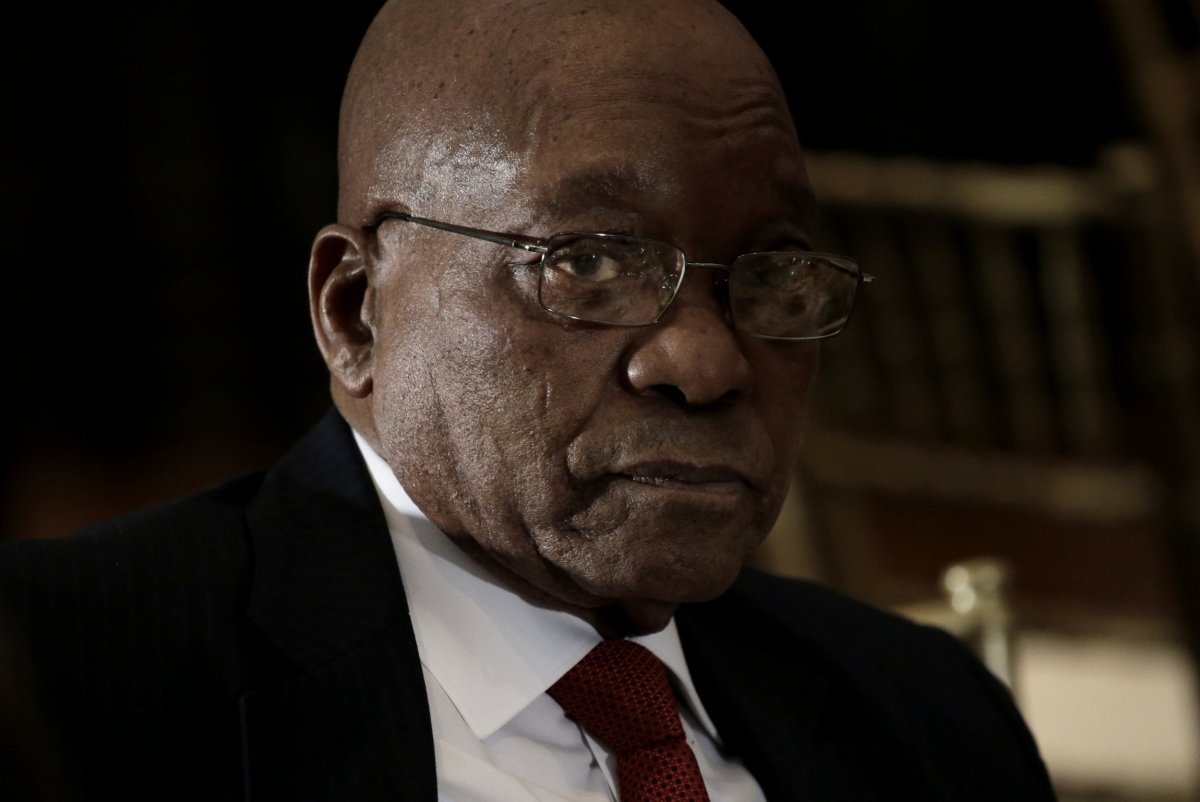
After more than two weeks of delays and a legal challenge from the president, South Africans finally got their hands on a controversial report on Jacob Zuma on Wednesday.
The office of the public protector, an independent anti-corruption watchdog, published a report entitled "State of Capture," authored by the post's former occupant Thuli Madonsela. The phenomenon of private enterprise exercising undue authority over public interests is known as state capture in South Africa.
The report is an investigation of the relationship between South African President Jacob Zuma and the Guptas, a wealthy family with a vast network of business enterprises across the country. Madonsela investigated allegations that the Gupta brothers—Ajay, Atul and Rajesh—were wielding undue political influence, including offering ministerial appointments, as a result of the family's close ties to Zuma. Three members of the president's immediate family were employed by Gupta-run businesses in the past.
Zuma had initially lodged a legal bid to delay the report's publication, which was scheduled for October 14, Madonsela's final day in office. But without explanation, the president dropped his challenge on Wednesday, clearing the path for the 355-page report to be made publicly available.
Here are some of the report's key takeaways.
1. Appointments for cash
The allegation at the heart of the investigation came from South Africa's deputy finance minister, Mcebisi Jonas. The minister told Madonsela that Duduzane Zuma, the president's son, arranged a meeting with him in October. He said that Duduzane Zuma then brought him to the Guptas' residence in Johannesburg, where Ajay Gupta was waiting.
Ajay Gupta then allegedly told Jonas that he was being made minister of finance, on condition that he remove several Treasury officials who constituted a "stumbling block" to the Guptas' business ambitions. Jonas rejected the appointment, as only the president can make such decisions. Jonas said that as he was about to leave, Ajay Gupta made him an offer of 600 million rand ($45 million), which the minister declined. According to Jonas, Ajay Gupta then asked him if he had a bag "which he could use to receive and carry 600,000 rand ($45,000) in cash immediately." Jonas said he declined the offer.
In a statement released on Thursday, the Gupta family denied that there was such a meeting with Jonas.

2. The finance minister fiasco
In December 2015, President Zuma confounded the country by sacking then finance minister Nhlanhla Nene and replacing him with a relatively unknown backbencher, David van Rooyen. South Africa's economy groaned: The rand plummeted upon news of Nene's sacking and Zuma was criticized both within the governing African National Congress (ANC) and by opposition parties. Van Rooyen did less than a week in the job before Zuma replaced him with the current finance minister, Pravin Gordhan.
According to Madonsela's report, the mystery of van Rooyen's appointment was connected to the Guptas wielding undue political influence. The report placed van Rooyen at the Gupta residence in Saxonwold, Johannesburg, on seven occasions, including the day before he was appointed. Madonsela pointed out that his presence was "anomalous" considering the fact that van Rooyen was at the time based in Cape Town, which is on the other side of the country. Van Rooyen has not publicly responded to the report and the Ministry of Cooperative Governance and Traditional Affairs—which van Rooyen now heads up—did not immediately respond to a request for comment.
3. Capture of South Africa's power?
Brian Molefe, the chief executive of South Africa's state-run power agency, Eskom, also turned out to be a key player in Madonsela's report. According to the report, Molefe—whom the Gupta family acknowledge as a "good friend"—exchanged 58 phone calls with Ajay Gupta between August 2015 and March. The report also placed Molefe in the Saxonwold area on 19 occasions between August 5, 2015 and November 17, 2015.
The main allegation contained in the report is that Molefe purposefully weakened the financial position of Optimum Coal, one of its primary suppliers, after which the Guptas purchased the business. In a press conference on Thursday, Molefe denied the allegations, saying he was in the Saxonwold area to visit a bar.
4. Guptas come out fighting
The Gupta family have not taken Madonsela's accusations lying down.
"Our cursory reading [of the report] shows the evidence gathered is riddled with errors and is subject to rebuttal," the family's statement on Thursday said. The statement also said that the family welcomed Madonsela's call for a public inquiry into the affair in order to "clear our name."
The Gupta family lawyer, Gert van der Merwe, told Newsweek prior to the report's publication that Madonsela had not given the family a fair chance to respond to the allegations.

5. Clock ticking for Zuma
The main conclusion drawn by Madonsela was that there was evidence of possible corruption at the highest level of South Africa's government, which needed further exploration. The former public protector called for the president to establish a judicial commission of inquiry—to be run by a judge selected by Chief Justice Mogoeng Mogoeng, not Zuma— within 30 days to investigate the matter, and to report back with its findings within 180 days of its establishment.
Zuma is currently visiting Zimbabwe and is yet to comment on the report. But its publication is likely only to increase pressure on the embattled president, who has been at the center of multiple scandals during his presidency. The ANC chief whip recently called on Zuma to step down, while the Nelson Mandela Foundation also said that fresh leadership was required to stop "the wheels coming off" the country.
Uncommon Knowledge
Newsweek is committed to challenging conventional wisdom and finding connections in the search for common ground.
Newsweek is committed to challenging conventional wisdom and finding connections in the search for common ground.
About the writer
Conor is a staff writer for Newsweek covering Africa, with a focus on Nigeria, security and conflict.
To read how Newsweek uses AI as a newsroom tool, Click here.








